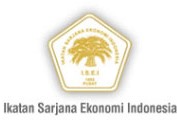A Survey on Women's Motivation to Reduce Poverty
(1) Universitas Negeri Semarang
(2) Universitas Negeri Semarang
(3) Universitas Negeri Semarang
Abstract
Nowadays, women still become an objectsof life. Even though women can be competent objects of development. Lack of motivation to women is the main problem why women are not productive in public matters. The purpose of this study was to see whether women's empowerment could increase women's motivation to alleviate poverty. This research is an exploratory research which intends to collect facts in depth. The population in this study were 229 women from poor communities who did not or had not worked in Kudus Regency. The sample obtained from Slovin formula is 145 women with the sampling technique using random sampling. Data were collected using a questionnaire and analyzed using SEM with the warpPLS analysis tool. This research shows that the motivation of the population of women does indeed have a significant effect on poverty alleviation because motivation makes what women do to be unbiased. Empowerment of women does not have any effect on motivation for poverty alleviation.
Keywords
Full Text:
PDFReferences
Alese, O. D. (2013). Women and Poverty Alleviation Programmes in Nigeria: The Napep Approach. Academic Journal of Interdisciplinary Studies, 2(3). https://doi.org/10.5901/ajis.2013.v2n3p515
Alvarez, S. A., Barney, J. B., & Newman, A. M. B. (2015). The poverty problem and the industrialization solution. Asia Pacific Journal of Management, 32(1), 23–37. https://doi.org/10.1007/s10490-014-9397-5
Coady, D. (2003). Alleviating Structural Poverty in Developing Countries : the Approach of Progresa in Mexico. Nutrition, 1–28.
Diochon, M. (2013). Social Entrepreneurship and Effectiveness in Poverty Alleviation: A Case Study of a Canadian First Nations Community. Journal of Social Entrepreneurship, 4(3), 302–330. https://doi.org/10.1080/19420676.2013.820779
Gau, R., Ramirez, E., Barua, M. E., & Gonzalez, R. (2014). Community-Based Initiatives and Poverty Alleviation in Subsistence Marketplaces. Journal of Macromarketing, 34(2), 160–170. https://doi.org/10.1177/0276146714522265.
Hisrich, R., Langan-Fox, J., & Grant, S. (2007). Entrepreneurship Research and Practice: A Call to Action for Psychology. American Psychologist, 62(6), 575–589. https://doi.org/10.1037/0003-066X.62.6.575
Hoque, N., Khan, M. A., & Mohammad, K. D. (2015). Poverty alleviation by Zakah in a transitional economy: a small business entrepreneurial framework. Journal of Global Entrepreneurship Research, 5(1). https://doi.org/10.1186/s40497-015-0025-8
Isiaka, O., Johari, F., & Alias, M. H. (2013). the Determinants of Women Empowerment and Its Impact on Poverty Alleviation: a Case of Kwara State, Nigeria (a Pilot Study). Asian Journal of Social Sciences & Humanities, 2(4), 342–347.
Islam, M., & Sarmah, J. K. (2014). Impact of Self Help Groups in Empowering Women : Social Change and Development, XI(2), 90–98.
Macfadyen, G., & Corcoran, E. (2002). Literature Review of studies on poverty in fishing communities and of lessons learned in using the sustainable livelihoods approach in poverty lleviation strategies and projects. Fisheries Circular, 979, 1–93. http://www.fao.org/3/a-y3914e.pdf
Maryam, E. W., & Indriani, R. D. D. S. (2016). Community Participation in Poverty Alleviation Efforts Based on Women's Empowerment through the P3EL Program in Sidoarjo Regency [Partisipasi Masyarakat Terhadap Upaya Pengentasan Kemiskinan Berbasis Pemberdayaan Perempuan Melalui Program P3EL Kabupaten Sidoarjo]. Psikologia : Jurnal Psikologi, 3(1), 83. https://doi.org/10.21070/psikologia.v3i1.114
Moyo, C. S., & Francis, J. (2010). Women Empowerment Initiatives for Rural Development in South Africa : The Missing Piece of the Puzzle. Journal of African Studies, 24(1), 1–22.
Okoli, C. I., & Igwegbe, A. I. (2015). Educators’ Rating of Strategies Considered Necessary for Motivation of Potential Entrepreneurs among Secondary School Students for Poverty Alleviation in Anambra State. Journal of Education and Practice, 6(14), 6–11. http://search.ebscohost.com/login.aspx?direct=true&db=eric&AN=EJ1080128&site=ehost-live
Parvin, G. A., Ahsan, S. M. R., & Chowdhury, M. R. (2004). Women Empowerment Performance of Income Generating Activities Supported by Rural Women Employment Creation Project (RWECP): A Case Study in Dumuria Thana, Bangladesh. Journal of Geo-Environment, 4, 47–62. http://dept.ru.ac.bd/geography/Article_5.PDF
Rita Ifeoma, A., Purity, N.-O., & Emmanuel Yusuf, A. (2018). Effect of Entrepreneurship Development on Poverty Alleviation in Nigeria, 20, 80–87. https://doi.org/10.9790/487X-002108087
Sunderlin, W. D. (2006). Poverty alleviation through community forestry in Cambodia, Laos, and Vietnam: An assessment of the potential. Forest Policy and Economics, 8(4), 386–396. https://doi.org/10.1016/j.forpol.2005.08.008
Winters, P., Corral, L., & Mora, A. M. (2013). Assessing the Role of Tourism in Poverty Alleviation: A Research Agenda. Development Policy Review, 31(2), 177–202. https://doi.org/10.1111/dpr.12002
Refbacks
- There are currently no refbacks.

This work is licensed under a Creative Commons Attribution 4.0 International License.






